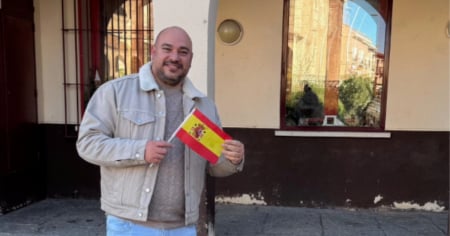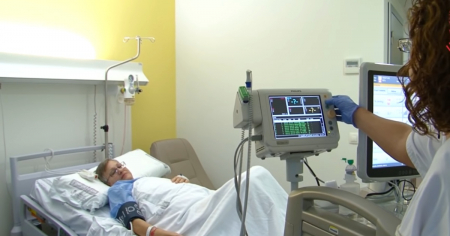
Related videos:
The number of Cubans who have arrived in Spain between 2023 and 2024 amounts to 53,100, according to provisional data while awaiting the National Institute of Statistics (INE) of Spain to publish the final results for the last quarter of 2024.
According to preliminary records, during the year 2023, a total of 28,900 Cuban citizens entered Spanish territory, while in the first three quarters of 2024, the number reaches 24,200. The statistics could increase once the data for the period from October to December of this year is published.

The migratory flow of Cubans to Spain has shown a growing trend in recent years, driven by factors such as the economic crisis on the Island, the search for better living conditions, and the possibility of benefiting from the Democratic Memory Law, known as the "Grandchildren's Law," which has facilitated the acquisition of Spanish nationality for thousands of Cubans with Iberian ancestry.
Spanish immigration authorities have highlighted that the Cuban community in the country continues to grow steadily, primarily settling in cities like Madrid, Barcelona, and Valencia, where they have established family and community support networks.
The INE indicates that the publication of the final data for the year 2024 will provide a more comprehensive view of the Cuban migration phenomenon to Spain and its evolution in recent years.
More than 53,000 Cubans who arrived in Spain between 2023 and 2024 are joining a community that, as of January 2023, had nearly 200,000 residents of Cuban origin.
This increase in migration has been facilitated by initiatives such as the Law of Democratic Memory, known as "Grandchildren's Law," which has allowed numerous Cubans to obtain Spanish nationality.
Moreover, programs like the Arraigo Project have encouraged the repopulation of rural areas in Spain, providing job and housing opportunities for Cuban families looking to settle outside of large cities.
However, many migrants face significant challenges, such as the need to validate their professional degrees in order to work in their fields of expertise, as is the case with the Cuban doctors who protested to expedite the processes for validating their university degrees.
In response, governments of communities such as Madrid, have committed to speeding up these accreditation processes to facilitate the labor integration of foreign professionals.
Filed under:





